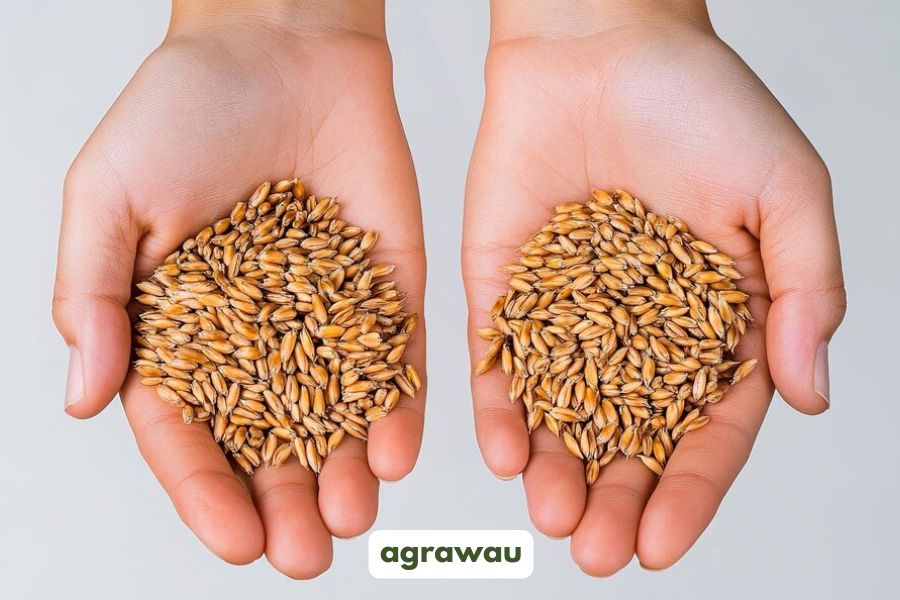Sustainable agriculture is essential for maintaining the health of our planet and ensuring food security for future generations. In recent years, there has been growing interest in innovative practices and approaches that can support sustainable farming. One such approach is the use of Agrawau. This blog post explores what Agrawau is, its role in sustainable agriculture practices, and how it can help farmers achieve their sustainability goals.
What is Agrawau?
Agrawau is an innovative agricultural technique that emphasizes the integration of various farming practices to enhance productivity while minimizing environmental impact. The term “Agrawau” may vary in meaning across different cultures and regions, but its core principles revolve around sustainable farming methods that promote ecological balance, resource conservation, and social equity.
Key Principles of Agrawau
- Biodiversity: Agrawau promotes biodiversity by encouraging the cultivation of diverse crops and the use of natural pest control methods. This diversity helps improve soil health and resilience to pests and diseases.
- Soil Health: Maintaining healthy soil is a cornerstone of Agrawau. Practices such as crop rotation, cover cropping, and reduced tillage help improve soil fertility and structure, leading to better crop yields over time.
- Water Conservation: Efficient water management is vital in sustainable agriculture. Agrawau encourages techniques such as rainwater harvesting and drip irrigation to optimize water use and reduce waste.
- Community Involvement: Agrawau emphasizes the importance of community engagement and knowledge sharing among farmers. Collaborative efforts can lead to the sharing of best practices, resources, and support.
- Economic Viability: Sustainable agriculture should also be economically viable. Agrawau aims to ensure that farmers can generate a fair income while implementing environmentally friendly practices.
The Importance of Sustainable Agriculture
Addressing Food Security
As the global population continues to grow, food security is becoming an increasingly pressing issue. Sustainable agriculture practices, including Agrawau, play a crucial role in ensuring that we can produce enough food without depleting our natural resources. By using innovative farming methods, farmers can enhance productivity while preserving the environment.
Protecting the Environment
Traditional farming practices often lead to soil degradation, water pollution, and loss of biodiversity. Sustainable agriculture practices like Agrawau help mitigate these issues by promoting ecological balance. By focusing on soil health, water conservation, and biodiversity, farmers can contribute to the protection of our planet.
Climate Change Mitigation
Climate change poses a significant threat to agriculture and food security. Sustainable agriculture practices can help mitigate the impacts of climate change by reducing greenhouse gas emissions and enhancing carbon sequestration in soils. Agrawau’s emphasis on sustainable practices can play a vital role in combating climate change.
How Agrawau Works in Sustainable Agriculture
Agrawau encompasses various techniques and methods that can be integrated into sustainable agriculture practices. Here are some key ways it works:
Crop Diversification
One of the fundamental aspects of Agrawau is crop diversification. By planting a variety of crops, farmers can improve soil health, reduce pest pressure, and increase resilience to climate-related challenges. Crop rotation, intercropping, and polyculture are common practices that align with Agrawau principles.
Benefits of Crop Diversification
- Improved Soil Fertility: Different crops contribute various nutrients to the soil, enhancing its fertility.
- Pest Control: A diverse crop system can disrupt pest cycles, reducing the need for chemical pesticides.
- Resilience: Diverse crops are better equipped to withstand adverse weather conditions.
Organic Farming Practices
Agrawau’s promotes the use of organic farming practices that minimize the use of synthetic fertilizers and pesticides. Instead, farmers can rely on natural inputs such as compost, organic matter, and beneficial microorganisms to enhance soil health and promote plant growth.
Benefits of Organic Farming
- Soil Health: Organic practices improve soil structure and fertility, leading to healthier crops.
- Reduced Environmental Impact: Organic farming reduces pollution and protects water quality by minimizing chemical runoff.
- Healthier Produce: Organic crops often have higher nutritional value and are free from harmful chemical residues.
Water Management Techniques
Effective water management is crucial for sustainable agriculture. Agrawau encourages farmers to adopt water conservation techniques such as rainwater harvesting, drip irrigation, and soil moisture monitoring.
Benefits of Efficient Water Management
- Resource Conservation: Reducing water waste helps conserve this precious resource.
- Increased Crop Yields: Proper irrigation techniques can lead to higher crop yields, even in dry conditions.
- Drought Resilience: Efficient water management enhances a farm’s ability to cope with droughts and changing climate patterns.
Agroforestry
Agroforestry involves integrating trees into agricultural landscapes, creating a symbiotic relationship between crops, livestock, and trees. This practice aligns with Agrawau’s principles and offers several benefits.
Benefits of Agroforestry
- Enhanced Biodiversity: Trees provide habitats for various species, promoting biodiversity.
- Soil Erosion Control: Tree roots help prevent soil erosion and improve soil stability.
- Climate Resilience: Agroforestry systems are often more resilient to climate variability.
Challenges and Solutions in Implementing Agrawau
While the principles of Agrawau offer numerous benefits, farmers may face challenges in implementing these practices. Here are some common challenges and potential solutions:
Limited Knowledge and Training
Many farmers may lack knowledge about sustainable practices or how to implement Agrawau principles effectively.
Solutions:
- Education and Training: Agricultural extension services and training programs can provide farmers with the knowledge and skills needed to adopt sustainable practices.
- Peer Learning: Encouraging farmers to share experiences and knowledge within their communities can foster learning.
Economic Constraints
Some farmers may face financial barriers that make it challenging to transition to sustainable practices.
Solutions:
- Access to Funding: Governments and organizations can offer grants or low-interest loans to support farmers in adopting sustainable practices.
- Market Incentives: Creating markets for organic and sustainably produced goods can provide farmers with financial incentives.
Climate Variability
Climate change can pose significant challenges to agricultural practices.
Solutions:
- Adaptive Strategies: Farmers can adopt climate-resilient crops and practices that can withstand changing conditions.
- Research and Innovation: Ongoing research into climate-smart agriculture can provide farmers with new tools and techniques.
The Future of Agrawau in Sustainable Agriculture
As the world continues to face environmental challenges, the importance of sustainable agriculture practices like Agrawau cannot be overstated. The future of Agrawau in sustainable agriculture will likely involve:
Advancements in Technology
The integration of technology into agriculture can enhance the implementation of Agrawau principles. Precision agriculture, data analytics, and remote sensing can help farmers make informed decisions about crop management, water use, and soil health.
Collaborative Efforts
Collaboration among farmers, researchers, governments, and organizations will be essential in promoting Agrawau and sustainable agriculture practices. Sharing knowledge and resources can lead to more effective implementation of sustainable methods.
Policy Support
Government policies that support sustainable agriculture practices will play a crucial role in the future of Agrawau. Incentives for adopting sustainable methods and regulations promoting environmental stewardship can encourage farmers to embrace Agrawaus principles.
Conclusion
Agrawau is a vital component of sustainable agriculture practices that offers numerous benefits for farmers, communities, and the environment. By promoting biodiversity, enhancing soil health, conserving water, and fostering community involvement, Agrawau can contribute to a more sustainable future for agriculture. As we continue to face challenges such as climate change and food security, the role of innovative approaches like Agrawau will become increasingly important in shaping the future of farming.
FAQs
What is Agrawau?
This is an innovative agricultural technique that emphasizes sustainable farming practices to enhance productivity while minimizing environmental impact.
How does Agrawau promote sustainable agriculture?
This promotes sustainable agriculture by focusing on biodiversity, soil health, water conservation, community involvement, and economic viability.
What are the benefits of crop diversification?
Crop diversification improves soil fertility, reduces pest pressure, and increases resilience to climate-related challenges.
How can farmers implement Agrawau practices?
Farmers can implement Agrawau practices by adopting crop diversification, organic farming techniques, efficient water management, and agroforestry systems.
What challenges do farmers face in adopting sustainable practices?
Farmers may face challenges such as limited knowledge, economic constraints, and climate variability when adopting sustainable practices like Agrawau.



